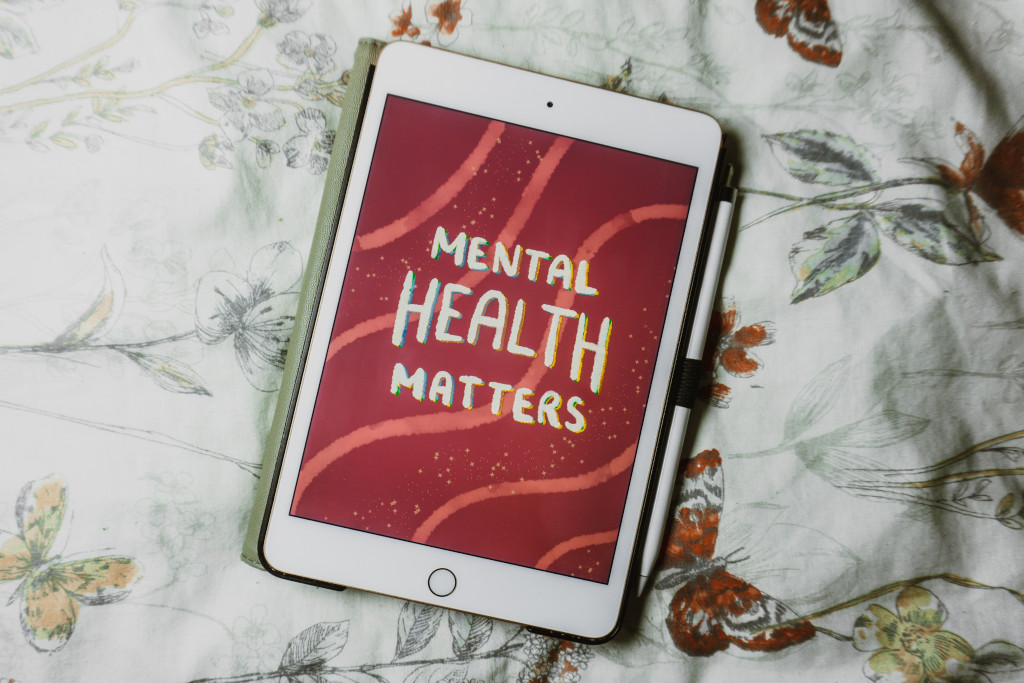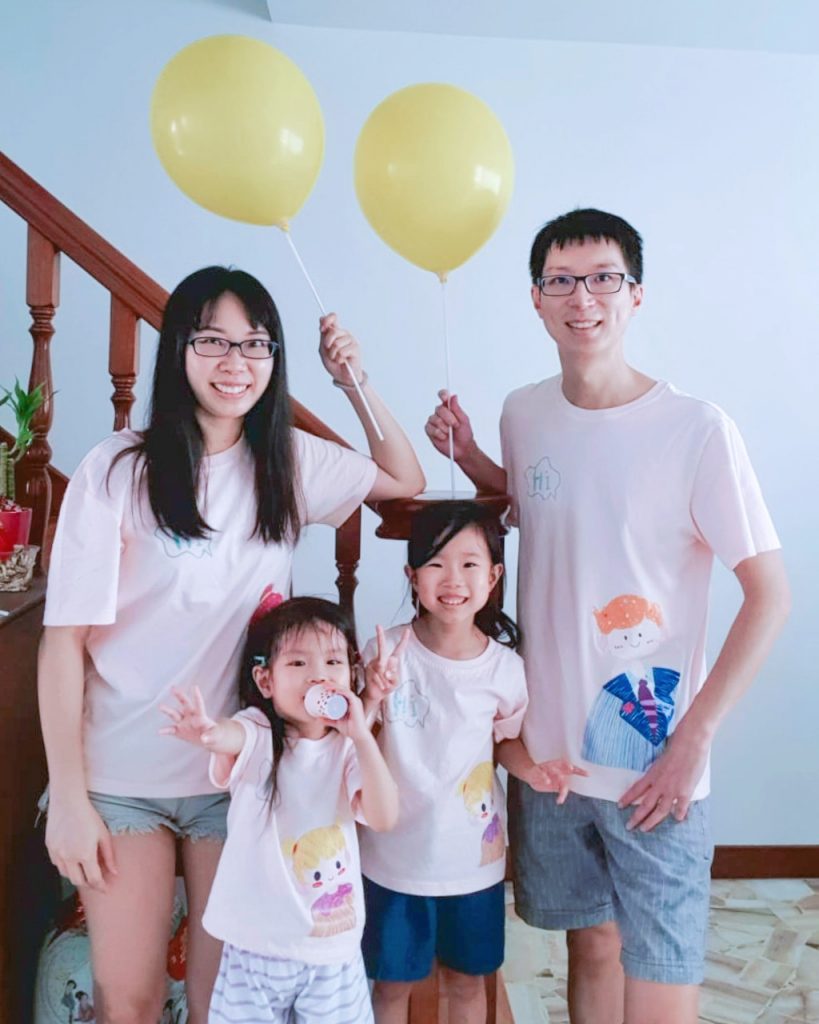SingaporeMotherhood | Parenting
March 2022
Are You a Caregiver for Your Child? – Please Read This (+ True Life Stories)

The case of 11-year-old twin boys found dead at Greenridge Crescent Playground earlier this year struck a nationwide nerve. The shock waves intensified when we learnt that the boys had autism and their father — and caregiver — was charged with their murder. It begs the question: When are you simply a parent and when are you also a caregiver for your child? This is an important distinction to make if your child has special needs, be it developmental, physical, or mental health challenges.
A group of students from the Wee Kim Wee School of Communication and Information knows this all too well. Sometime last year, Sejal Bagaria, Glen Foong, Abner Chong, and Esther Lim were brainstorming what cause they wanted to champion for their final year project. In sharing their own personal stories, something clicked.
“We found a huge gap in the support within the caregiver community, specifically those caring for children and youth with mental health issues,” they said. “The media covers caregivers caring for the elderly, or those with disabilities, but rarely ever focused on caregivers in the mental health scene.”
(See also: Autism: Beyond Awareness to Real Hope for this Doctor’s Son)
Helpless and Unprepared

In their preliminary research, the team spoke to a few caregivers they knew. “Once we heard how helpless they felt and how grateful they were to our potential campaign for shedding light on their needs, we knew we were headed in the right direction.”
These are some key findings they gleaned from interviews with both caregivers and experts in the field:
- Caregivers are not prepared with the knowledge or skills required to handle difficult situations. This often left them feeling helpless when faced with them.
- There seems to be too much information. Yet they are confused as to how to find the information they need and how to get it easily.
- The caregiving journey involves many, such as schools, organisations, and workplaces, as well as counsellors, therapists, caregivers’ friends and families, who provide support throughout the journey.
- Though no journey is ever the same, caregivers typically go through three stages — crisis, coping, advocacy — in their own time.
- Caregivers also struggle with depression, suicidal ideation, and burnout. Some caregivers even have their own counsellors.
- Besides having little time for self-care, caregivers believe their time and energy should be spent mainly on their child.
- Caregivers still face judgement from others when it comes sharing about their situations, which causes them to avoid seeking help.
(See also: Life Keeps Giving Her Lemons but This Single Mum Just Keeps Giving Back)

In collaboration with the Institute of Mental Health (IMH) and Caregivers Alliance Limited (CAL), they launched a campaign called Prepare to Care. Its objectives include to provide more resources for caregivers of youth with mental health conditions and normalise help-seeking. They also want to encourage more caregivers to better prepare themselves mentally for tough times ahead, and practise self-care along the way.
What Makes Caregiving for Children Unique
Veena Nanthakumar, outreach programme manager at CAL, says, “Simply put, a key difference would be that caregivers for the elderly or terminally ill would need to prepare for issues related to end-of-life, while a caregiver for children needs to prepare them for life transitions ahead.”
“Managing a child’s sense of self-worth if they are grappling with a mental health condition is a particularly unique challenge to bear,” she adds. “This is especially crucial in our society, where stigma is still prevalent. Caregivers of children will also need to be vigilant of their behaviour (e.g. self-harm). Such behaviour can arise from issues such as bullying, body image expectations on social media, and sexuality.”
(See also: Cyberbullying in Singapore: is my Child a Victim?)

Stage of Development – Caregivers need to be aware that an elderly person and a child/teen are in comparatively different developmental/life stages. They may therefore have very different desires, hopes, and expectations. For example, the exploration of self-identity and independence is often a central focus for many adolescents.
Role within Family System – Additionally, for the elderly or terminally ill, the state of requiring caregiving may present adjustment challenges. They may be used to having a more dominant, decision-making role, which the caregiver is now taking over. This can lead to insecurities and friction in the family system.
Common Ground – That being said, whether you are a caregiver for the elderly, terminally ill, or children/teens, it remains important to consider ways to continue to inject autonomy and their input into various decision-making processes within the family or regarding their caregiving. Also, intentionally practising self-care is necessary for all caregivers.
(See also: Do you have Parental Burnout?)
True Stories of Caregivers for Children in Singapore
Elisia Chua is the mother of a seven-year-old with Selective Mutism. Mary (not her real name) has been her daughter’s caregiver for eight years since the latter was diagnosed with depression at age 12. Here are their stories.
My Child Who Would Not Speak by Elisia Phua
“’Why don’t you talk?’ Although this simple question is not directed at me, it often makes me feel a sense of helplessness. More so, if it comes from a family member.
My older daughter, Emilee, was formally diagnosed with Selective Mutism (SM) in March 2019 when she was three years old. Before the diagnosis, my hubby and I already sensed something was not quite right. Emilee would be chirpy and chatty at home but not speak a word to anyone outside. She had attended childcare for a year but would stay rooted to the ground and not participate in any activities. The worst was she wouldn’t even speak a word to my parents, her own grandparents. I often sensed the sadness in my mum’s voice whenever she called out to Emilee but was met with silence.

My mummy friends said that it was just an extreme shyness phase that would go away on its own. However, that slight, nagging sense of uneasiness stayed with me. It was not till much later that my sister and Emilee’s preschool teacher mentioned the possibility of SM. Only then did I seriously consider getting Emilee checked out. But how and where?
I started randomly scouring the internet for answers. Outwardly, I was the face of calm, but inside I was desperate to find any local information on SM. I finally chanced upon a comment made locally from someone who said that her son had it. In desperation, I sent the commenter a private message; I needed to connect with someone who understood.
It turns out that she ran a local SM support community. From there, I learned how to get Emilee formally diagnosed. I also gained a lot of information on how best to support our SM child.
(See also: Selective Mutism: When Your Child Just Won’t Speak)
I wish I could end here with “and they lived happily ever after”. However, SM is a challenging condition, and not just for the person with it. My hubby and I also had to learn how to manage our words and emotions to effectively help our child. It wasn’t easy, particularly for me. Certain child-rearing behaviours were ingrained in me from having had a fairly strict upbringing myself. To be honest, sending Emilee to the therapist was also a learning session for me.
There was also a period where I was suffering from hormonal imbalance due to hypothyroidism. I would often fly into a rage over the slightest things. It came to a point where we all felt this couldn’t go on. I needed to take care of my own well-being before I could care for my children. I was already on medication for hypothyroidism but sought extra help from Traditional Chinese Medicine. Things started to get better from then on.
Over the years, I have learnt to stay calm and go with the flow. The ‘fluidity’ of SM means that I cannot always expect the same outcome in every situation. I have also come to realise that it is pointless to get angry at others’ natural reaction to silence when speech is expected. What I can do is to help raise awareness on SM, even if it means arduously repeating myself to one person at a time. One more person knowing what SM is means another person in this world to help Emilee and others like her.
Emilee is now in Primary One and thriving well in the new environment. Every day is a new learning experience. She is learning to move forward courageously with her brave voice; I am also learning to better manage my words and emotions for my family.”
(See also: 8 Expert Strategies to Build your Child’s Self-esteem and give them Confidence in Life)
Diagnosed with Depression at 12 Years Old
Mary has been a caregiver of her now 20-year-old daughter for eight long years. When her daughter was in primary school, she fell in with the wrong crowd. Her peers also often bullied her. However, the final straw came when someone pushed her daughter down the stairs one day.

Mary eventually made the hard decision to pull her daughter out of school. Having been homeschooled herself, she was worried that her daughter would face the same challenges she did. However, she could not bear to send her back to school again.
She also took her daughter to see a doctor. At the tender age of 12 years, she was diagnosed with depression. The traumatic incident, coupled with the isolation her daughter faced when she was homeschooled, were key factors in her diagnosis.
(See also: Homeschooling in Singapore – Pros, Cons, and How It’s Done)
Besides doing her best to manage her daughter’s mental health, Mary struggled with the stigma that homeschooled children in Singapore had. She also felt lost about the homeschooling process, and was concerned about her daughter’s future, and how potential employers would perceive her. However, she was determined to prioritise her daughter’s happiness, no matter the cost.
As a more mature caregiver now, she takes an open-minded approach towards any mental health challenges that her daughter might face. She also acknowledges that recovery is not linear. Her daughter suffered a major relapse in 2019, refusing to leave her room for long periods of time. However, Mary strongly believes that caregivers should focus on their journey in the present. Worrying too much about the future will only cause them unnecessary stress.
(See also: Depression in Children: Spot the Signs and Seek Help Now)
Resources for Caregivers for Children
The Prepare to Care campaign, which ran from December 2021 to February 2022, specifically aimed to support caregivers caring for children and youth aged 7 to 19 years with mental health illnesses. Its virtual panel event on 19 February saw experts from IMH and CAL shed light on the topic and answer questions from caregivers.

Support groups, caregiver training, helplines, and general resources that caregivers of children with mental health conditions can tap on:
- Prepare to Care microsite – a one-stop platform on the IMH website offering caregiver resources
- Caregivers Alliance Limited (CAL) caregiver training programmes – support for caregivers of persons with mental health issues through education, support networks, crisis support, tailored services, and self-care enablement
- Caregivers’ Association of the Mentally Ill (CAMI) – information on crisis management, social and financial assistance, general information on mental illness, home visits, and a listening ear for caregivers by caregivers; 24-hour helpline 6782 9371
- Caregiving Welfare Association (CWA) support groups – monthly art therapy support group and mindfulness-based support group for caregivers to connect with one another
- Club HEAL caregivers’ support groups – a support system to render assistance to caregivers who support individuals suffering from a mental illness
- Singapore Association for Mental Health (SAMH) – emotional and practical support to youths, students, and adults with mental health issues — and their families and caregivers — through rehabilitation and reintegration
- Brahm Centre science-based mindfulness programmes – for children, youth, and adults to reduce stress and enhance well-being; counselling hotline (9am – 7pm) 6655 0000 and 8823 0000 (WhatsApp available)
- RMDY Clinic – medical and wellness clinic focused on preventive healthcare for the body and mind through holistic solutions that encompass lifestyle interventions, nutritional therapies, and medical considerations
(See also: 11 Best Support Groups In Singapore For First-Time Parents)
Everyone needs self-care, including caregivers who are caring for their loved ones. Some caregivers may feel guilty at taking time out to care for themselves, but it is important to remember that we need to care for ourselves before we are able to care for others. Just like rechargeable batteries, recharging and maintaining mental and physical wellness is crucial to continue in this caregiver journey.
Daniel Ho, Clinical Psychologist, Department of Developmental Psychiatry, Institute of Mental Health
Featured image: Ksenia Chernaya on Pexels
All content from this article, including images, cannot be reproduced without credits or written permission from SingaporeMotherhood.
Follow us on Facebook, Instagram, and Telegram for the latest article and promotion updates.





